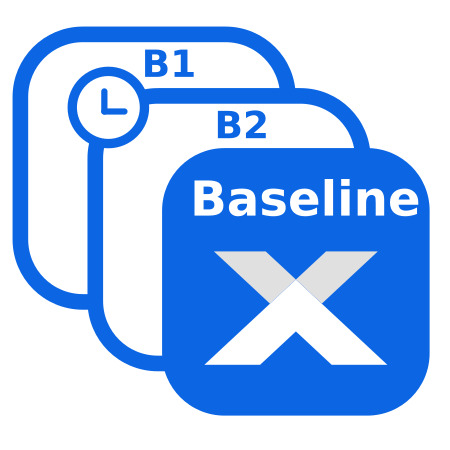Introduction

Effective project management is a complex endeavor, requiring a blend of best practices and supportive tools to manage various aspects such as budgeting, time management, and communication. The Project Management Institute (PMI) has delineated ten distinct project management knowledge areas in its PMBOK guide. To simplify these concepts, we've distilled them down to five essential knowledge areas crucial for project success, with a brief overview of the remaining five.
Read on to discover the five key project management knowledge areas you need to know for successful project execution, along with highlights of the other five areas.
10 Key Project Management Knowledge Areas
The Project Management Body of Knowledge (PMBoK) by the Project Management Institute (PMI) identifies ten crucial project management knowledge areas. These areas provide a standardized, repeatable framework that helps project managers leverage the lessons learned from previous projects, improving the chances of success. Here's a look at the ten key project management knowledge areas:
-
Integration Management
-
Scope Management
-
Schedule Management
-
Cost Management
-
Quality Management
-
Resource Management
-
Communication Management
-
Procurement Management
-
Stakeholder Management
-
Risk Management
By understanding and applying the principles from these ten knowledge areas, you can significantly enhance your project's success rate, avoiding common pitfalls and capitalizing on best practices established by seasoned project managers.
Benefits Of Using The PMBoK Knowledge Areas

Adopting the PMBoK knowledge areas offers several key benefits, helping to streamline your project management process and enhance project success. Here are some notable advantages:
-
Improved Organization: The PMBoK knowledge areas provide a comprehensive guide for managing a project from start to finish. They direct you to essential documentation and recommend tools and techniques to utilize, ensuring you cover all necessary aspects.
-
Project Transparency: Utilizing documents like the project charter and project plan enhances clarity. The project charter outlines the project’s objectives, scope, and key deliverables, ensuring everyone understands the project's goals and approach. It also defines the roles and responsibilities of stakeholders and team members, making accountability clear.
-
Effective Control: Several PMBoK knowledge areas focus on monitoring and controlling various aspects of the project. Whether managing the project schedule and costs or detailing the change control process as part of project integration management, these areas provide robust frameworks for keeping the project on track.
Focusing on the critical factors of time, scope, and cost—often referred to as the "iron triangle" of project success—is essential. Here’s a closer look at the five PM knowledge areas we will discuss in the next section:
-
Project Integration Management
-
Project Scope Management
-
Project Schedule Management
-
Project Cost Management
-
Project Stakeholder Management
5 Most Important Project Management Knowledge Areas

While all project management knowledge areas provide significant benefits, we've identified the top five that are often poorly managed or could be optimized with software like monday.com. Here's a concise overview of each:
Project Integration Management
Project integration management involves the seamless coordination of all project elements. Key activities include:
-
Coordinating tasks
-
Managing and evaluating resources
-
Communicating with stakeholders
-
Handling conflicts
-
Balancing competing demands
Project Scope Management
Project scope management is crucial, as only 29% of projects finish on time, often due to poor scope management. This area involves creating a detailed outline of all project aspects, including activities, resources, timelines, deliverables, and boundaries. Effective scope management prevents scope creep—unauthorized additions to the project—that can disrupt timelines, budgets, and resource management. A robust change control process is essential to manage necessary scope changes during the project.
Project Schedule Management
During the planning phase, the project manager must develop a comprehensive project schedule. This process includes:
-
Breaking down the agreed project scope into a detailed task list
-
Establishing start and finish dates for each task
-
Ordering tasks by identifying dependencies and relationships
Understanding the duration of each task and their interdependencies helps pinpoint which tasks have flexibility and which are on the critical path. Tasks on the critical path must be completed on time to prevent delays in the overall project timeline.
During project execution, earned value analysis is used to assess whether the project is progressing within the planned budget and schedule. This ensures timely adjustments can be made to keep the project on track.
Project Cost Management
Cost management is essential for maintaining your project within budget, yet only 43% of projects achieve this goal. Fortunately, this knowledge area is straightforward and involves three key steps:
-
Estimating Costs: Accurately estimate the costs associated with each project task.
-
Determining the Budget: Compile these estimates to establish the overall project budget.
-
Controlling Costs: Monitor and manage costs throughout the project lifecycle to ensure the budget is adhered to.
Project Stakeholder Management
In the project initiation phase, it is crucial to invest time in identifying and analyzing project stakeholders. This process involves "Mapping key stakeholders on an influence vs. interest matrix to identify primary supporters and those who may be less engaged."
Once the project begins, implement a comprehensive project communication plan to keep stakeholders informed and engaged. This plan ensures regular updates on project progress, fostering transparency and collaboration throughout the project lifecycle.
What About The Other 5 PMBoK Knowledge Areas?
Here's a fresh overview of the remaining five PMBoK knowledge areas:
Project Quality Management
Determining the desired quality level and standards during the project initiation phase is essential. Quality management influences project time and cost significantly, making it crucial to establish quality objectives early on.
Project Resource Management
Effective resource management is often challenging in project management. Tools like monday.com's resource management template can streamline this process, ensuring optimal allocation and utilization of project resources.
Project Communications Management
Building a robust communication plan to engage stakeholders throughout the project lifecycle is vital. Implementing and monitoring this plan during project execution ensures effective communication, both internally and externally, enhancing project transparency and stakeholder engagement.
Project Risk Management
Project risk management involves the systematic identification, prioritization, and mitigation of potential risks that could impact project success. A crucial step in this process is capturing all identified risks in the project risk register, allowing for thorough analysis and response planning. Common risks such as scope creep, project delays, and budget overruns, which occur in over 50% of projects, must be addressed proactively. By actively managing risks throughout the project lifecycle, project teams can minimize their impact on timelines, budgets, and overall project quality.
Project Procurement Management
Project procurement management focuses on planning and executing the acquisition of necessary resources or services to support project objectives. This knowledge area encompasses developing a procurement strategy to determine when and how resources will be procured, ensuring alignment with project timelines and budget constraints. Execution involves conducting procurement activities in accordance with the established strategy adhering to relevant regulations and guidelines. Effective procurement management facilitates timely access to essential resources, contributing to overall project success.
Frequently Asked Questions
What are project management knowledge areas?
In project management, knowledge areas refer to key thematic areas that guide project managers in prioritizing various project management processes to ensure successful execution. These areas encompass crucial aspects such as cost management and scheduling.
How many knowledge areas does PMBoK include?
PMBoK, the Project Management Body of Knowledge, recognizes 10 official knowledge areas.
Why are project management knowledge areas significant?
Project management knowledge areas play a pivotal role as they establish a structured framework for different project management processes across the project lifecycle. By delineating these areas, project managers can effectively navigate and address various aspects of project execution, contributing to project success.
Practice Project Management Knowledge Areas On monday.com
Effectively managing project management knowledge areas can be daunting, but with the right tools, such as RMsis and Links-Explorer by Optimizory, it becomes manageable. Project management software, such as monday.com, offers a valuable platform to put theory into practice.
Utilizing a comprehensive Work OS like monday.com empowers you to translate your project management knowledge into actionable strategies.
With monday.com, you can seamlessly implement project management best practices, streamline processes, and drive project success. Ready to optimize your project management workflows? Explore the solutions offered by Optimizory.




